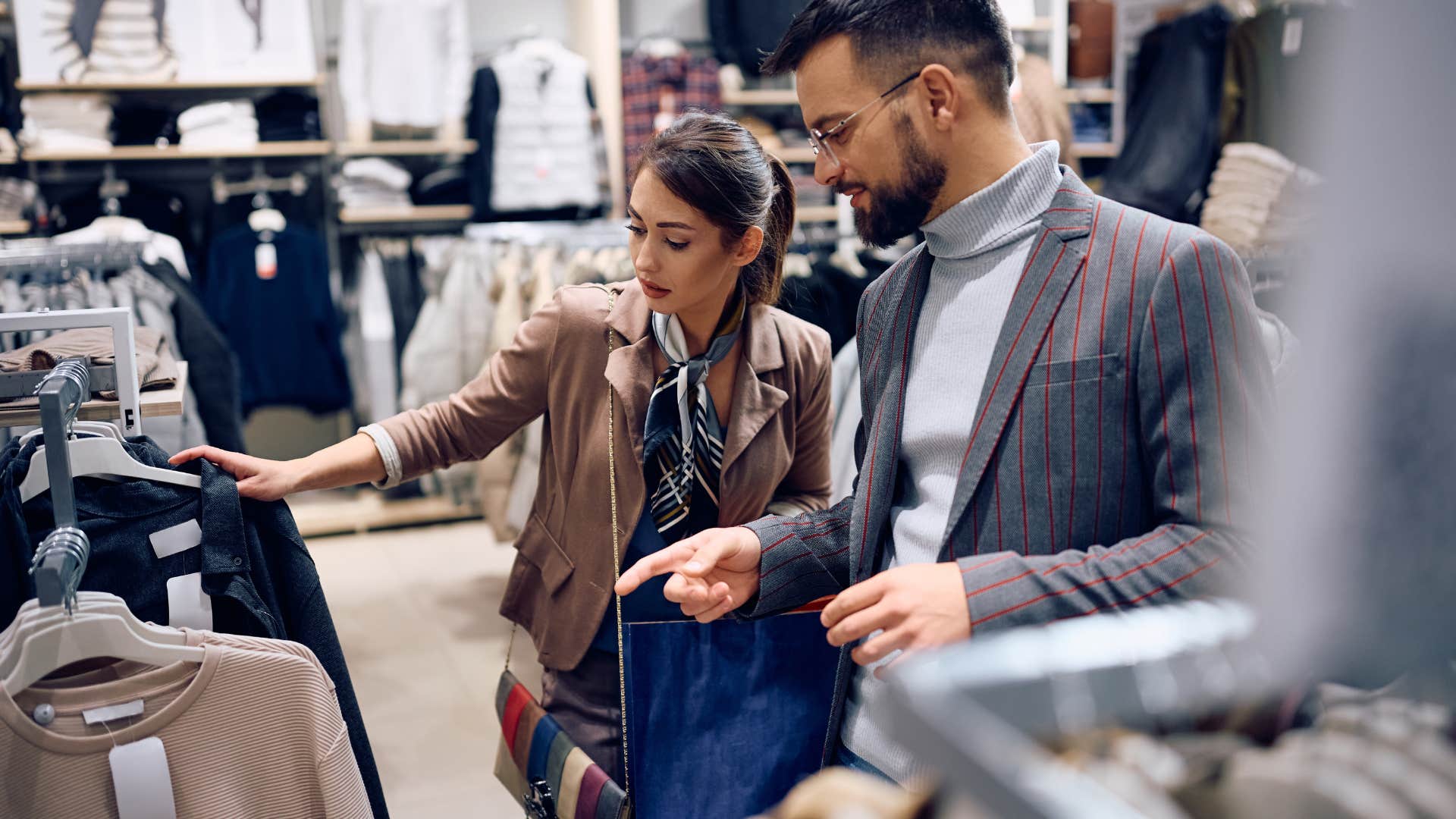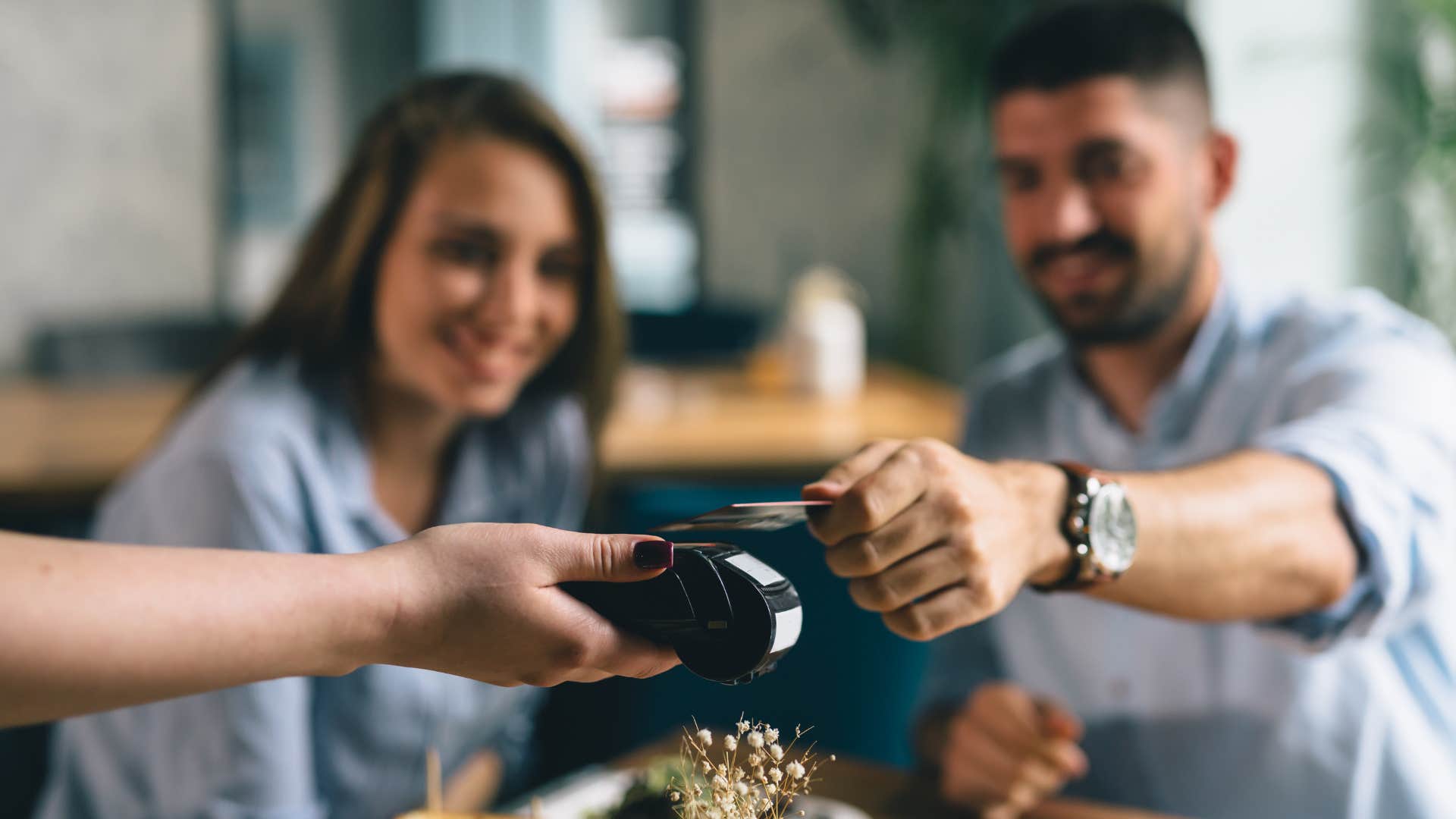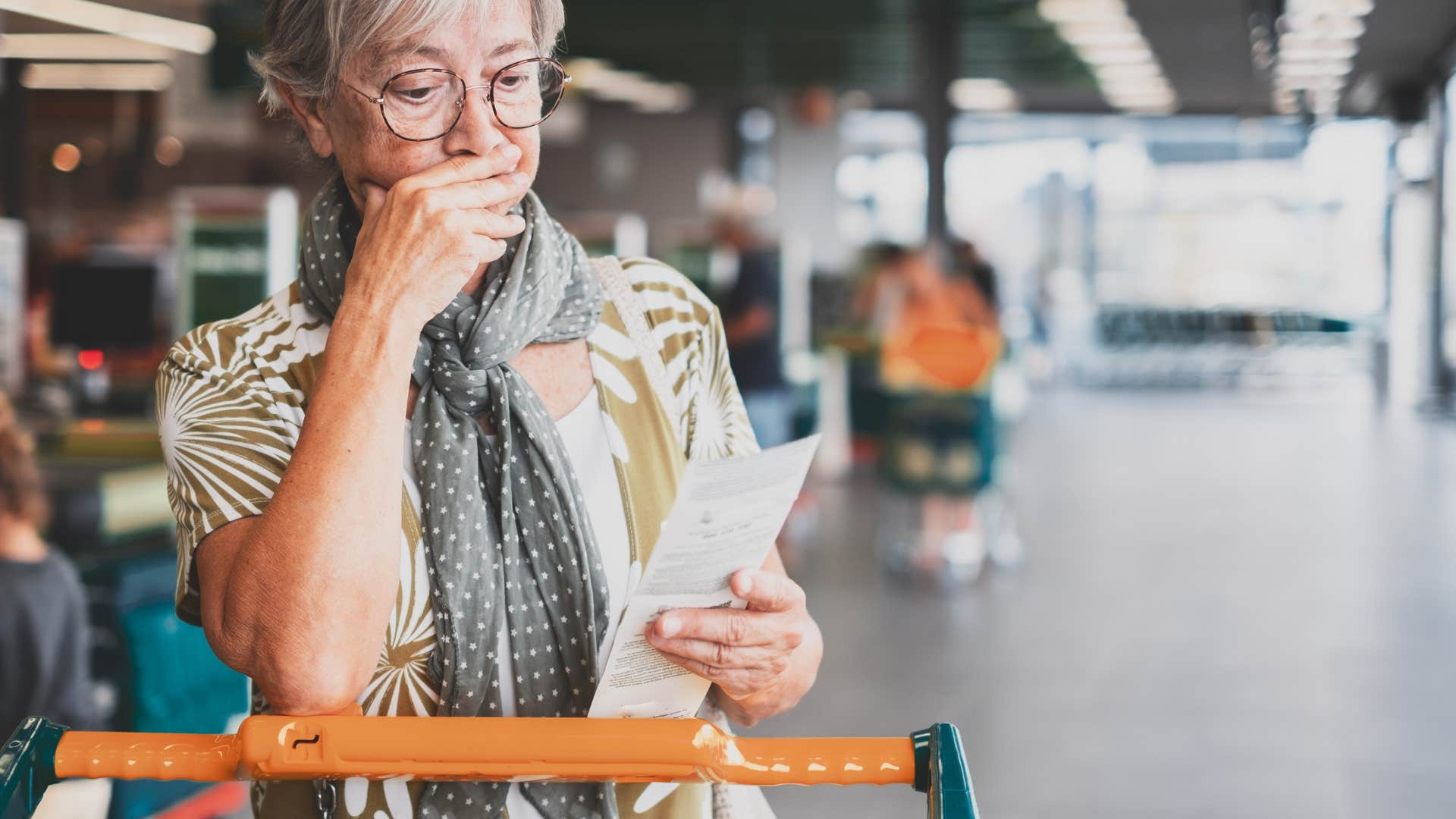People Who Still Carry Cash With Them Usually Believe In These 11 Old-School Principles
They prefer to do things the old-fashioned way.
 Boryana Manzurova | Shutterstock
Boryana Manzurova | Shutterstock As with everything in our society, technology has made it so that people rarely ever have to carry cash around with them. With things like Apple Pay and just tapping your credit or debit card against the machine whenever you need to make a purchase, people rarely ever need to go to the bank and take out money. While most of the world is on the cashless wave, there are definitely still people who prefer to have a bit of money in their pockets — literally.
Whether it's for tipping purposes or not wanting to use apps, people who still carry cash with them usually believe in these old-school principles. In fact, it's rarely about nostalgia and more about just being able to approach life in a way that most people seemed to have forgotten about. They refuse to just solely depend on machines and tablets, and can better keep track of their money in its physical form. But, above all else, they enjoy doing things the old-fashioned way, and that means they also have a few traditional principles they very much still believe in, even if the rest of the world has moved on.
People who still carry cash with them usually believe in these 11 old-school principles
1. If you can't afford it in cash, you can't afford it at all
 Drazen Zigic | Shutterstock
Drazen Zigic | Shutterstock
For a lot of people, it's so easy to swipe and not think twice about it at all. But for people who carry cash, if they don't have the money in their wallet at that given moment, then they aren't buying it.
Carrying cash means you're really living within your means, and that discipline can be quite freeing for these individuals. According to a Pew Research Center survey, roughly four-in-ten Americans (41%) say none of their purchases in a typical week are paid for using cash.
They're not getting surprised at the amount of money they're spending nor are they going out of their way to get more cash. It's what they have on their person that will get them through the day. Because of that, they're so much more intentional about their choices and will think twice about blowing it on something that they don't really need.
2. Saying 'no' is a form of self-respect
 Krakenimages.com | Shutterstock
Krakenimages.com | Shutterstock
Saying no goes hand-in-hand with the responsibility they feel towards their finances. Just as they know how to manage their money wisely, they also know when they need to be showing up and when they don't need to be. And people who still carry cash with them usually believe in these old-school principles.
It's not about being rude at all, but about being able to protect their energy and make sure they're not wasting any of their resources. Just because you're spending or even lending money doesn't always mean that you should be. Being able to know when to put your foot down can help immensely with ensuring that you're not abusing your bank account when you know you need to be saving.
3. You should always be prepared for an emergency
 insta_photos | Shutterstock
insta_photos | Shutterstock
Carrying cash is about being able to avoid the curveballs that might be thrown your way throughout the day. These individuals know that anything can happen and, therefore, they'll be forced to take out their cash and remedy the situation.
It's just a matter of peace of mind over anything else when it comes to carrying cash around with them. Most people don't even have an emergency savings account, though. According to a study from Empower, more than 1 in 5 (21%) Americans have no emergency savings.
Being prepared for an emergency isn't about living in this constant state of paranoia either. It's about knowing that you have a few dollars on hand in case a stressful moment needs to be managed. Whether it's a sudden parking meter that needs to be paid or you need to leave a tip somewhere that you didn't prepare for before leaving the house, the cash gives them the option of never having to pull out their card.
4. Tipping in cash shows real respect
 Dejan Dundjerski | Shutterstock
Dejan Dundjerski | Shutterstock
Those with old-fashioned principles know that showing appreciation is about it being in the most personal of ways. For them, being able to leave a cash tip is not just customary, but better than tips left on a credit card. The cash lands straight into their hands and they don't have to worry about it taking days or even weeks to process and clear.
These individuals understand that restaurant servers, delivery drivers, and even coffee shop baristas rely on tips to make their income, and putting money directly into their hands shows that they care deeply about the work they do and the service they've provided.
However, not everyone agrees to the tipping culture in this country. According to a Pew Research Center survey, more Americans oppose (40%) than favor (24%) businesses suggesting tip amounts to their customers.
5. Handwritten notes are more personal
 PeopleImages | Shutterstock
PeopleImages | Shutterstock
People who still carry cash definitely have an appreciation for the more traditional things, and that includes being able to write handwritten notes to people. There's something so nostalgic for them about picking up a pen and paper, sitting down, and writing something that feels intentional.
Sure, a quick text message or even a phone call works all the same, but there's just something so personal about being able to write someone a letter. It's a deliberate action, and these individuals are all about being deliberate considering they never leave the house with cash in their pockets.
6. Paper receipts are a safety net
 Lucigerma | Shutterstock
Lucigerma | Shutterstock
In a time when everything is digital, people who still carry cash with them usually believe in the old-school principle of paper receipts that can't be replicated. They would much rather ask for a physical copy than accept getting one digitally sent to them. Not only is it reassuring to have a physical record of what you've just spent your money on, but it's also proof that the purchase happened in case something happens down the line.
In their home, they make sure to have a designated folder with all of their paper receipts safely kept inside. Being able to physically see where their money is going also helps with making sure they're being smart about their finances. After making any purchase, whether it's big or small, they'll ask for their receipt and tuck it up safely inside their wallet so they make sure they don't misplace it.
7. Good habits start with self-control
 PeopleImages | Shutterstock
PeopleImages | Shutterstock
People who carry cash around with them think of it as less of a financial choice and more about being able to practice self-control. When you have dollar bills in your hand, you might think twice before spending them. It's not as if there's some kind of magic word that can undo the transaction, which actually forces you to stop and consider whether a purchase is necessary.
"There are so many stories we can have about money and a lot of deeply ingrained beliefs that can bring up powerful emotional responses. No matter what you believe about money, taking control of your finances and planning for the future can provide a sense of security, freedom, and peace of mind," women's leadership expert Megan Dalla-Camina explained.
This habit of spending can help individuals who carry cash actually think long-term about their purchases. They end up resisting making unnecessary ones, and in the process learn how to be patient. If they truly want something, they're able to sleep on it for a couple of days and really think if they need it before going through with the purchase.
8. Small businesses deserve money
 Krakenimages.com | Shutterstock
Krakenimages.com | Shutterstock
Those who carry cash with them are the type of people that will gladly support a small business in their community. They have no problem giving their hard-earned cash to equally hard-working small business owners who pour love and care into the products they're making and selling to the people that come by every single day.
Rather than giving it up to big corporations and billionaires who couldn't care less about working-class people, these individuals have such a bigger appreciation for the small businesses everywhere. It's about being able to see value in the small businesses that work hard amidst the influx of giant corporations who are trying to shove their way in.
9. You don't need to post everything you buy online
 PeopleImages | Shutterstock
PeopleImages | Shutterstock
An old-fashioned principle that these individuals live by is that not everyone online needs to know the moves that you're making, especially financially. Just because you've purchased something new, it doesn't mean that it needs to be posted online immediately. Some things are just meant to be enjoyed privately, without trying to seek approval from strangers through a screen.
"For some, frequent reassurance seeking is [habit-forming], almost like a drug. The likes and comments are a temporary fix. While they might feel better at the moment, the positive effects are usually short-lived because they come from others and not from within themselves," insisted clinical psychologist Bonnie Zucker.
Cash users are also just making more meaningful purchases, which means they don't feel the need to talk about it on social media. Because they're actually parting from their money, everything means more when they finally decide to spend it.
10. Standing in line teaches patience
 PeopleImages | Shutterstock
PeopleImages | Shutterstock
Standing in line for these individuals is so much more than just a convenience thing. For them, it allows for being able to learn how to navigate learning true patience. Standing in line, whether you're at the store waiting to pick something or even waiting in line to board a plane, allows for you to just take a moment and actually pause.
That small amount of stillness shows that not everything needs to be rushed all of the time either. Sometimes it's best to take your time, and considering those who carry cash feel that way about money, it's not surprising that they preach this old-fashioned principle that waiting in line is a valuable experience.
11. You don't need an app to track your spending
 Dorde Krstic | Shutterstock
Dorde Krstic | Shutterstock
People who still carry cash with them usually believe in the old-school principle of not needing any apps to track spending. According to a survey from Debt.com, an estimated 95% of people felt that budgeting was extremely critical in today's economy, while 86% admitted that they're the type to budget regularly. So, while there are many ways to budget your money, those who still carry cash firmly believe in just using a pen and paper.
They don't see the fuss about having an app or program just to keep track of your expenses. But for some people, depending on an app can prove to be both convenient and will actually encourage them to be smart about their finances.
Even if they're just using the Notes app in their phone, it makes recording their purchases and keeping track of their income so much easier than having to carry around a pen and paper. Truthfully, it shouldn't matter what you're using to budget, as long as you're doing it in the first place. Whatever works for people, works for them.
Nia Tipton is a staff writer with a bachelor's degree in creative writing and journalism who covers news and lifestyle topics that focus on psychology, relationships, and the human experience.

